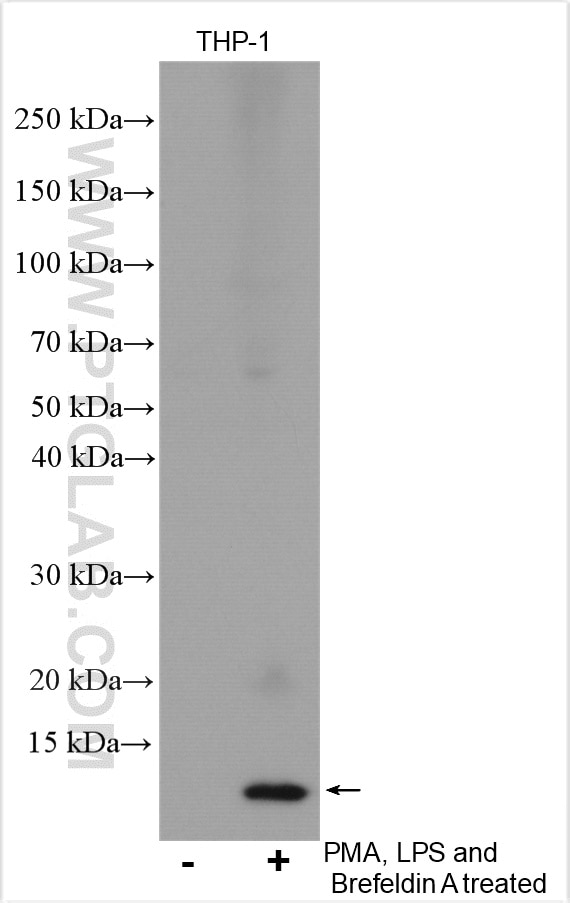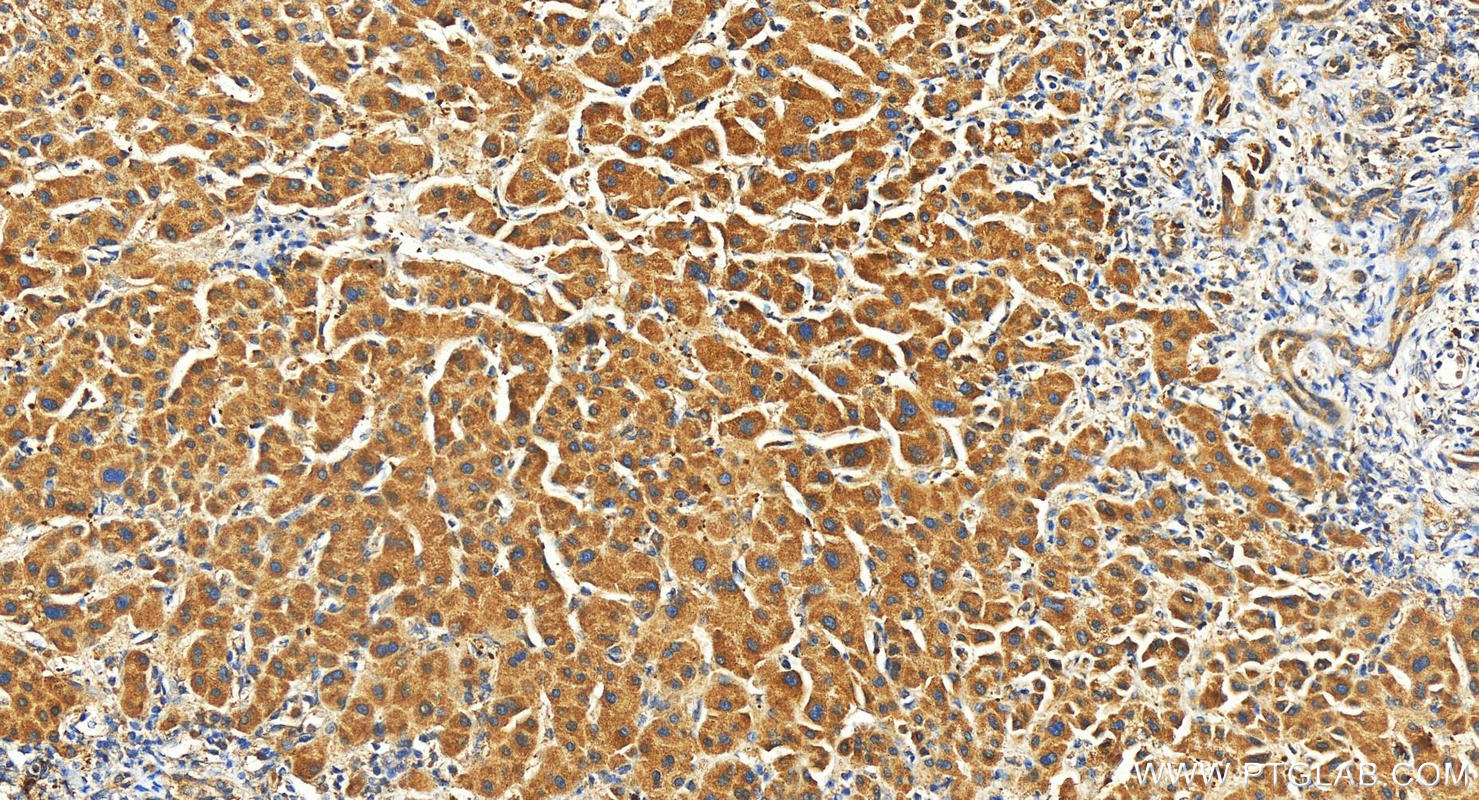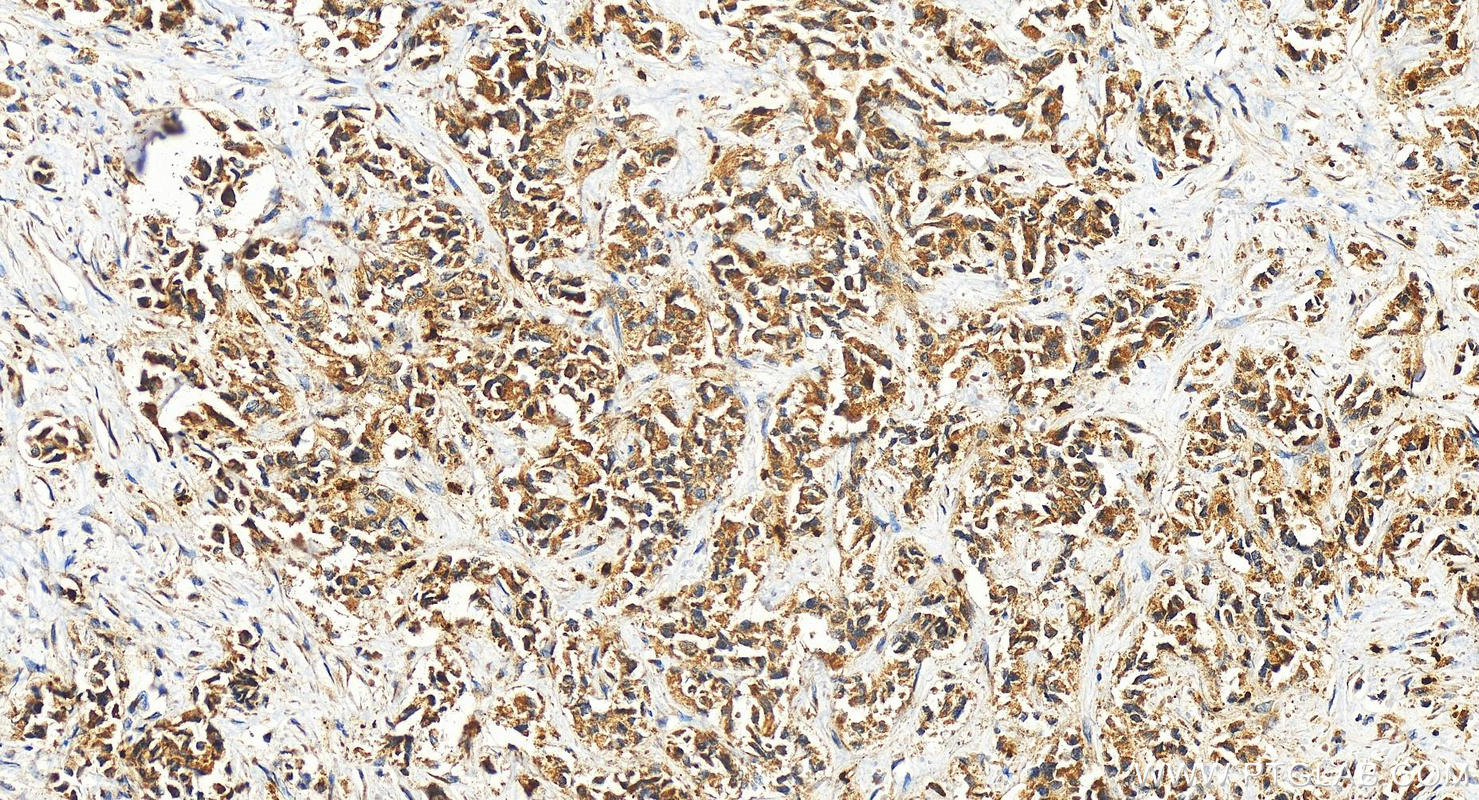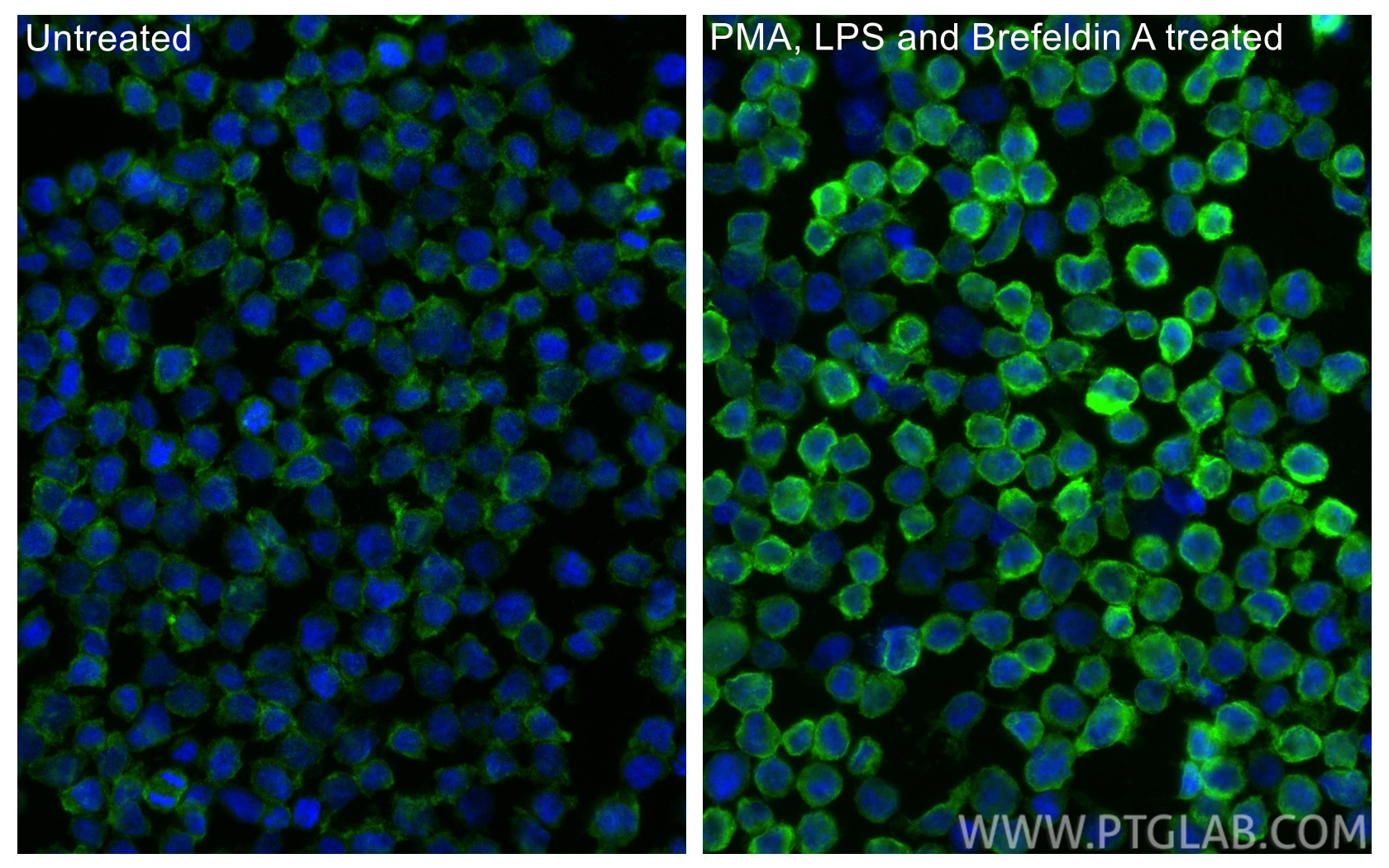Tested Applications
| Positive WB detected in | PMA, LPS and Brefeldin A treated THP-1 cells |
| Positive IHC detected in | human intrahepatic cholangiocarcinoma tissue Note: suggested antigen retrieval with TE buffer pH 9.0; (*) Alternatively, antigen retrieval may be performed with citrate buffer pH 6.0 |
| Positive IF/ICC detected in | PMA, LPS and Brefeldin A treated THP-1 cells |
Recommended dilution
| Application | Dilution |
|---|---|
| Western Blot (WB) | WB : 1:500-1:2000 |
| Immunohistochemistry (IHC) | IHC : 1:50-1:500 |
| Immunofluorescence (IF)/ICC | IF/ICC : 1:50-1:500 |
| It is recommended that this reagent should be titrated in each testing system to obtain optimal results. | |
| Sample-dependent, Check data in validation data gallery. | |
Published Applications
| WB | See 38 publications below |
| IHC | See 32 publications below |
| IF | See 7 publications below |
| ELISA | See 1 publications below |
Product Information
27095-1-AP targets CXCL8/IL-8 in WB, IHC, IF/ICC, ELISA applications and shows reactivity with human samples.
| Tested Reactivity | human |
| Cited Reactivity | human, pig, zebrafish |
| Host / Isotype | Rabbit / IgG |
| Class | Polyclonal |
| Type | Antibody |
| Immunogen |
CatNo: Ag25640 Product name: Recombinant human CXCL8/IL-8 protein Source: e coli.-derived, PGEX-4T Tag: GST Domain: 40-99 aa of BC013615 Sequence: YSKPFHPKFIKELRVIESGPHCANTEIIVKLSDGRELCLDPKENWVQRVVEKFLKRAENS Predict reactive species |
| Full Name | interleukin 8 |
| Calculated Molecular Weight | 99 aa, 11 kDa |
| Observed Molecular Weight | 11 kDa |
| GenBank Accession Number | BC013615 |
| Gene Symbol | IL-8 |
| Gene ID (NCBI) | 3576 |
| ENSEMBL Gene ID | ENSG00000169429 |
| RRID | AB_2861340 |
| Conjugate | Unconjugated |
| Form | Liquid |
| Purification Method | Antigen affinity purification |
| UNIPROT ID | P10145 |
| Storage Buffer | PBS with 0.02% sodium azide and 50% glycerol, pH 7.3. |
| Storage Conditions | Store at -20°C. Stable for one year after shipment. Aliquoting is unnecessary for -20oC storage. 20ul sizes contain 0.1% BSA. |
Background Information
Interleukin 8 (IL-8), also known as CXCL8, which is a member of the CXC chemokine family. This chemokine is secreted by a variety of cell types including monocyte/macrophages, T cells, neutrophils, fibroblasts, endothelial cells, and various tumor cell lines in response to inflammatory stimuli. IL-8 has two primary functions. It induces chemotaxis in target cells, primarily neutrophils but also other granulocytes, causing them to migrate toward the site of infection. IL-8 also induces phagocytosis once they have arrived. This gene is believed to play a role in the pathogenesis of bronchiolitis, a common respiratory tract disease caused by viral infection. IL-8 is also known to be a potent promoter of angiogenesis. IL-8 has been associated with tumor angiogenesis, metastasis, and poor prognosis in breast cancer. IL-8 may present a novel therapeutic target for estrogen driven breast carcinogenesis and tumor progression. The human IL-8 cDNA sequence predicts a protein of 99 amino acids. Removal of a 22-residue signal peptide generates a mature protein of 77 amino acids (~ 8 kDa).
Protocols
| Product Specific Protocols | |
|---|---|
| IF protocol for CXCL8/IL-8 antibody 27095-1-AP | Download protocol |
| IHC protocol for CXCL8/IL-8 antibody 27095-1-AP | Download protocol |
| WB protocol for CXCL8/IL-8 antibody 27095-1-AP | Download protocol |
| Standard Protocols | |
|---|---|
| Click here to view our Standard Protocols |
Publications
| Species | Application | Title |
|---|---|---|
Adv Sci (Weinh) Traditional Chinese Medicine Formulae QY305 Reducing Cutaneous Adverse Reaction and Diarrhea by its Nanostructure | ||
Gut Microbes Fusobacterium nucleatum promotes esophageal squamous cell carcinoma progression and chemoresistance by enhancing the secretion of chemotherapy-induced senescence-associated secretory phenotype via activation of DNA damage response pathway | ||
Acta Pharmacol Sin Calcipotriol abrogates cancer-associated fibroblast-derived IL-8-mediated oxaliplatin resistance in gastric cancer cells via blocking PI3K/Akt signaling. | ||
iScience Analysis of microbiota reveals the underlying mechanism of PHF11 in the development of Enterococcus-regulated endometriotic cysts | ||
Int Immunopharmacol Aflatoxin B1 exposure triggers inflammation and premature skin aging via ERMCS/Ca2+/ROS signaling cascade |
Reviews
The reviews below have been submitted by verified Proteintech customers who received an incentive for providing their feedback.
FH Maggie (Verified Customer) (12-08-2025) | Overnight incubation at 4°C. Secondary antibody incubation for 1 hr at RT.
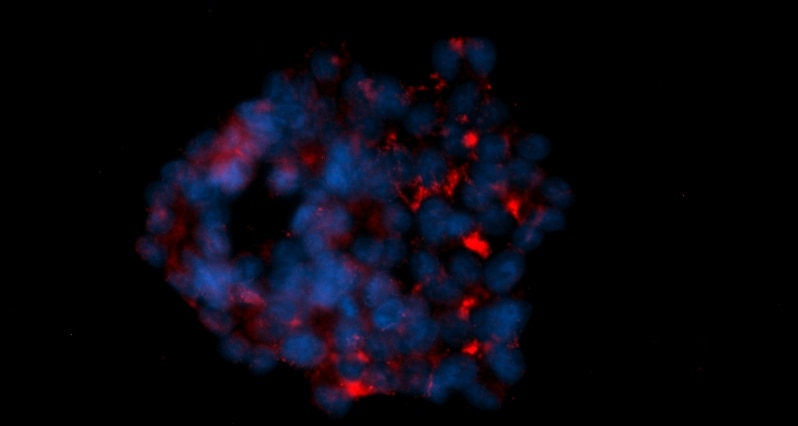 |

